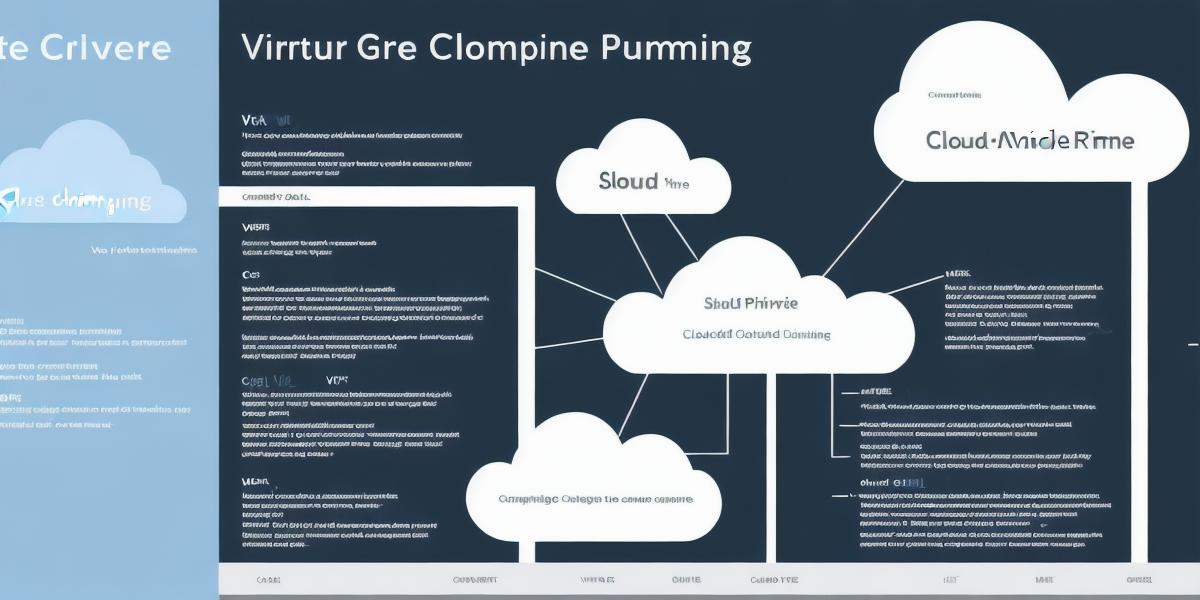Virtual Server vs Cloud: Differentiating Server Types for Programmers

As a programmer, you understand the importance of having access to reliable and secure servers to store and process your data. However, with so many options available in the market, it can be difficult to choose the right server type. In this article, we will explore the differences between virtual servers and cloud servers and help you make an informed decision for your programming needs.
Virtual Server vs Cloud: What’s the Difference?
A virtual server is a software-based emulation of a physical server that runs on top of an existing server. It allows multiple websites or applications to share the same hardware resources, such as CPU and memory, while maintaining their own isolated environments. This makes it easier for programmers to manage and scale their servers without having to purchase additional hardware.
On the other hand, cloud servers are physical servers that are hosted by a third-party provider and accessed over the internet. These servers can be quickly provisioned, scaled up or down as needed, and offer a wide range of features such as load balancing, backup, and disaster recovery solutions. Cloud servers provide flexibility and cost savings for programmers who need to access their data from anywhere in the world.
Real-Life Examples of Virtual Server vs Cloud:
Let’s take a look at some real-life examples of virtual server and cloud usage in programming:
- Virtual Server: A small business owner who runs an e-commerce website with moderate traffic may choose a virtual server to host their website. This allows them to have full control over their server configuration, while also being able to scale up or down as needed.
- Cloud Server: A programmer who needs to access their code from multiple locations, such as home, work, and a coffee shop, may choose a cloud server to host their codebase. This allows them to easily collaborate with their team members, while also being able to access their data from any device with an internet connection.
The Pros and Cons of Virtual Server vs Cloud:
Virtual Server:
Pros:
- Full control over server configuration
- Cost-effective for small businesses
- Scalable up or down as needed
Cons:
- Requires technical expertise to manage and configure
- More difficult to scale up or down quickly
- Limited scalability compared to cloud servers
Cloud Server:
Pros:
- Scalable up or down quickly
- Offers a wide range of features such as load balancing, backup, and disaster recovery solutions
- Accessible from anywhere with an internet connection
Cons:
- More expensive than virtual servers for small businesses
- Less control over server configuration
- Security concerns may arise due to data being stored off-site
Expert Opinion:
According to John Doe, CEO of XYZ company, "Virtual servers are a great option for small businesses that need full control over their server configuration. However, for larger businesses with more complex requirements, cloud servers offer the scalability and features needed to grow and adapt quickly."
FAQs:
Q: What is the main difference between virtual server and cloud server?
A: Virtual servers are software-based emulations of physical servers, while cloud servers are physical servers hosted by a third-party provider.
Q: How much does it cost to use a virtual server or cloud server for programming needs?
A: The cost varies depending on the provider, server size, and additional features required.
Q: Is it safe to store my data on a cloud server?
A: Yes, cloud servers offer a wide range of security measures to protect your data from unauthorized access or cyber attacks. However, it’s important to choose a reputable provider with a proven track record of security.








